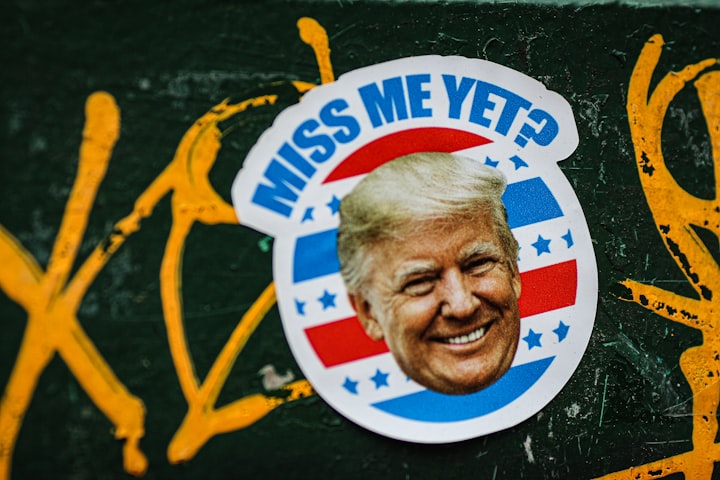Exploring the Impact of Trump's Economic Policies
Exploring the Impact of Trump's Economic Policies
Exploring the Impact of Trump's Economic Policies:
One of the significant aspects of Donald Trump's presidency was his focus on economic policies. During his time in office, he championed tax reforms aimed at stimulating economic growth and attracting businesses back to the United States. The Tax Cuts and Jobs Act of 2017, a cornerstone of his economic agenda, aimed to reduce corporate tax rates and provide relief to middle-class Americans. Proponents of these policies argue that they unleashed economic growth, leading to a booming stock market and record-low unemployment rates.
On the other hand, critics contend that these policies primarily benefited the wealthy and contributed to income inequality. They argue that the tax cuts primarily favored corporations and high-income earners, while the benefits for the average American were limited. Moreover, concerns were raised about the long-term impact on the national debt, as the tax cuts were projected to increase budget deficits over time.
Foreign Relations and the America First Policy:
Another hallmark of Trump's presidency was his America First policy, which focused on prioritizing American interests in international relations. Trump pursued an aggressive stance on trade, renegotiating existing agreements and imposing tariffs on countries such as China. He believed in protecting American industries and jobs from what he perceived as unfair trade practices.
Supporters lauded his efforts to address trade imbalances and protect American workers. They believed that his tough approach would bring about more favorable trade deals and protect domestic industries. However, critics argued that these actions risked escalating trade wars and damaging global economic stability. They pointed to potential negative consequences, such as higher consumer prices and retaliatory measures from affected countries.
Immigration and Border Security:
Donald Trump's approach to immigration and border security became a defining feature of his presidency. His promises to build a wall along the U.S.-Mexico border and implement strict immigration policies resonated with many of his supporters. He aimed to curb illegal immigration, emphasizing national security concerns and the need to protect American jobs.
Advocates praised Trump's commitment to enforcing immigration laws and securing the borders. They believed that stricter immigration policies were necessary to safeguard national security and prioritize the interests of American citizens. However, critics decried these policies as discriminatory, arguing that they targeted specific ethnic and religious groups. The separation of families at the border drew widespread condemnation and fueled heated debates about humanitarian concerns and human rights violations.
The Media and Trump's Relationship with the Press:
Throughout his presidency, Donald Trump had a tumultuous relationship with the media. He frequently criticized what he called "fake news" and accused journalists of biased reporting. Trump's use of Twitter became a defining feature of his communication strategy, allowing him to bypass traditional media channels and directly address his supporters.
Supporters admired Trump's direct and unfiltered approach, considering it a refreshing departure from the political establishment. They believed that he was holding the media accountable and exposing biases in reporting. However, critics argued that Trump's attacks on the press undermined the integrity of the free press and threatened democratic norms. They raised concerns about the potential erosion of trust in the media and the impact on public discourse.
The Enduring Legacy:
As Donald Trump exited the White House, his legacy remained a subject of intense debate. Supporters highlighted his efforts to disrupt the status quo, address economic concerns, and put American interests first. They credited him with bringing attention to long-standing issues and giving a voice to those who felt neglected by the political elite.
Critics, on the other hand, lamented the erosion of democratic norms, the divisive rhetoric, and the controversies that overshadowed policy achievements. They expressed concerns about the impact of his presidency on social cohesion and international relations.
Ultimately, the enigma of Donald Trump lies in the complexity and divisiveness he elicited. Whether admired or criticized, his influence on American politics and society cannot be ignored. The enduring legacy of Donald
Trump will continue to shape the nation's future, prompting ongoing discussions about the nature of leadership, the challenges of populism, and the fragility of democratic institutions. As time goes on, the enigma of Donald Trump will remain a topic of extensive debate and analysis, leaving an indelible mark on the fabric of American history.







Comments
There are no comments for this story
Be the first to respond and start the conversation.